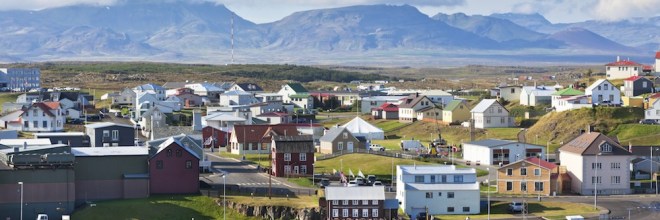
A landmark DNA study in Iceland has led to an unprecedented take a look at a whole country’s genetic makeup, discovering several previously unknown mutations that may cause a wide array of different health issues, but regulations prevent some of that data from getting used.
According to the New York Times, scientists from Reykjavk-based DeCode Genetics could sequence the complete genomes of thousands of Icelanders, the largest group ever analyzed in a single population. The research helped them identify genetic mutations that could lead to the development of conditions such as Alzheimer’s, heart disease and gallstones.
The outcomes of the work they do have been published in the journal Nature. Daniel G. MacArthur, a Massachusetts General Hospital geneticist who was not involved in the project, said that it was “amazing work” and told the newspaper that DeCode has “managed to get more genetic data on a much larger chunk of the population compared to any other country on the planet.”
Using the information from the study, the scientists said they were able to infer the genomes of at least 1 / 3 of the country’s population, and DeCode founder and CEO Kri Stefnsson told MIT Technology Review that while using data, he was able to identify all of the people residing in Iceland who’re vulnerable to developing a deadly cancer.
The only issue is: He can’t do anything whatsoever about it.
Stefnsson asserted DeCode’s data can currently identify a couple of,000 somebody that has the gene BRCA, which is susceptible to mutations that may drastically increase breast and ovarian cancer risk. He added the company is currently in negotiations with health authorities when it comes to whether or not those members of the public can or should be informed from the risk.
“We could save these people from dying prematurely, but we’re not, because we as a society haven’t agreed on that,” Stefnsson said. “I personally believe that not saving people with these mutations is a crime. This is an enormous risk to some many people.”
The ethical issues arise from the fact that a minimum of some people identified as being at risk did not participate in the study rather than gave their consent to any research. Officials in the Icelandic Secretary of state for Welfare told MIT it had formed a unique committee to supervise these kinds of “incidental” findings, and that new regulations could be proposed by year’s end.
The techniques used by DeCode to calculate people’s genes might be applied to any country, and may similarly be used to infer the genes of anyone, whether or not they had agreed to participate such research, Stefnsson explained. Iceland was chosen because of their detailed genealogical, but similar questions regarding reporting health hazards could arise in america, UK or elsewhere.
“Various legal and ethical obstacles currently prevent DeCode from warning people who are in danger,” MIT reported. “Volunteers who signed up for DeCode’s studies were promised anonymity, and also that they wouldn’t learn of research findings. Bioethicists notice that people have the right ‘not to know’ of genetic hazards, which means they cannot just be told.”
“The rule is you can just use and expose genetic data if you have the permission in the individual under consideration,” explained University of Iceland anthropologist Gsli Plsson. “But this really is beyond informed consent. Individuals are not even within the studies, they haven’t submitted any consent or perhaps a sample, the company claims to have knowledge about these people and that there’s a health risk.”
Women that possess the BRCA2 mutation possess a life expectancy of 12 years less than those who don’t have the mutation, because roughly 86 percent of people who get it will develop cancer, noted MIT. Men can also be affected by the mutation, which can increase their chance of? cancer of the prostate, and DeCode noted that lots of those deaths could be avoided by preventive surgery.
Stefnsson asserted they might find all the women with the BRCA2 mutation “at the push of a button,” which the information could also predict which members of the populace could be most at risk of neurodegenerative conditions such as Alzheimer’s or learning disabilities.
By taking the data they have collected, generating rough gene maps known as genotypes and combining it with genealogical tables, the company was able to “impute” the genomes of nearly all people of Icelandic decent C without or with their permission. Sean Harper, the head of R&D at DeCode’s parent company Amgen, asserted this ability presents a “conundrum.”
“It’s a gray area from a bioethics perspective, but we’d be inclined to provide the data or at best a notice,” he explained, adding that Amgen, which utilizes information from DeCode to guide its pharmaceutical research, didn’t have intention of charging anybody for the risk information it acquired. “It would not be appropriate [to] come up with it an industrial process,” he explained.

































